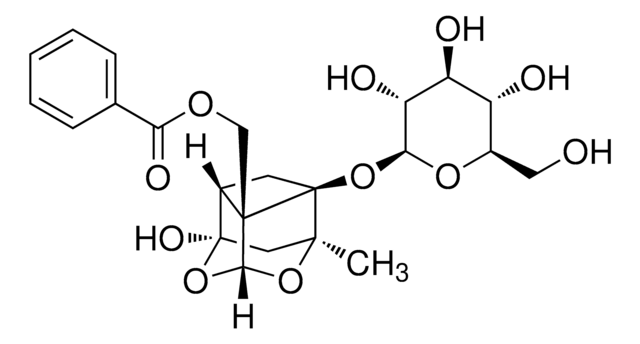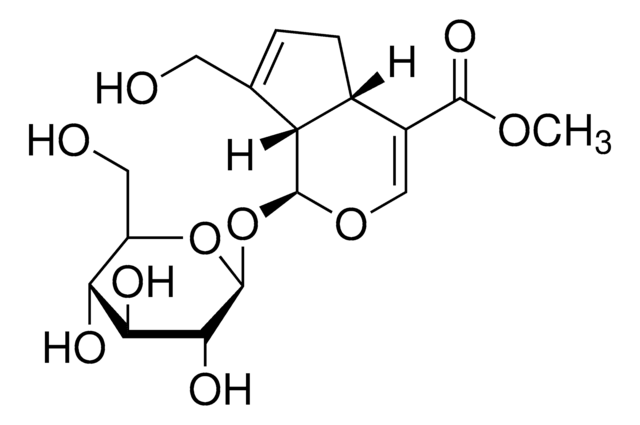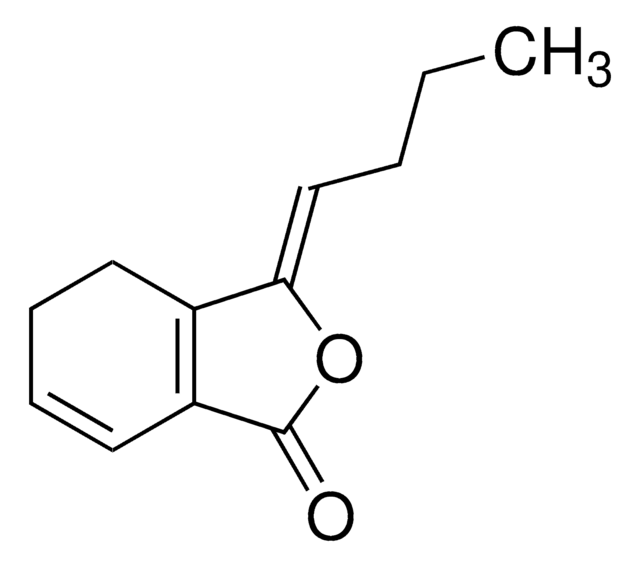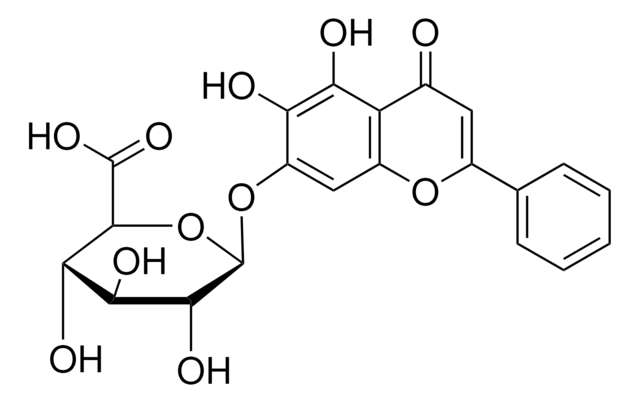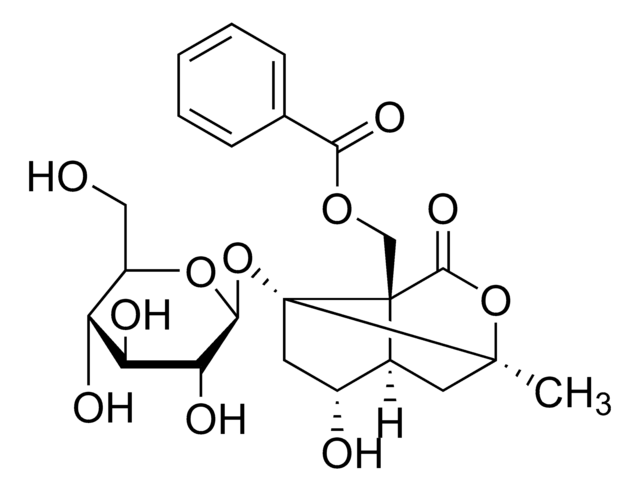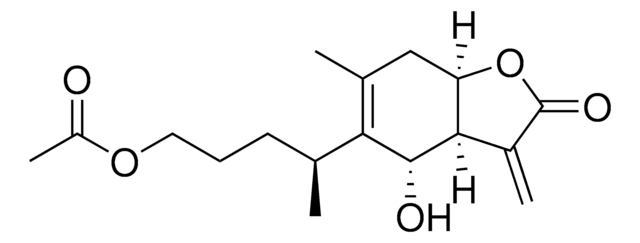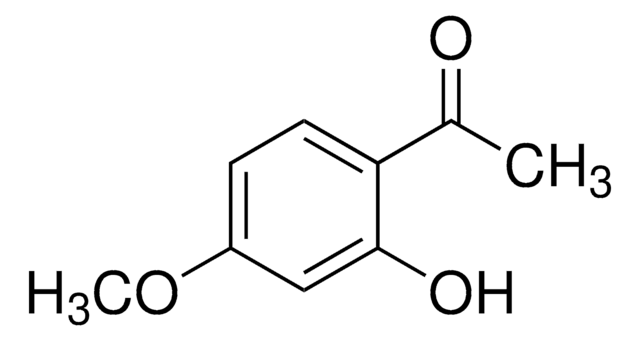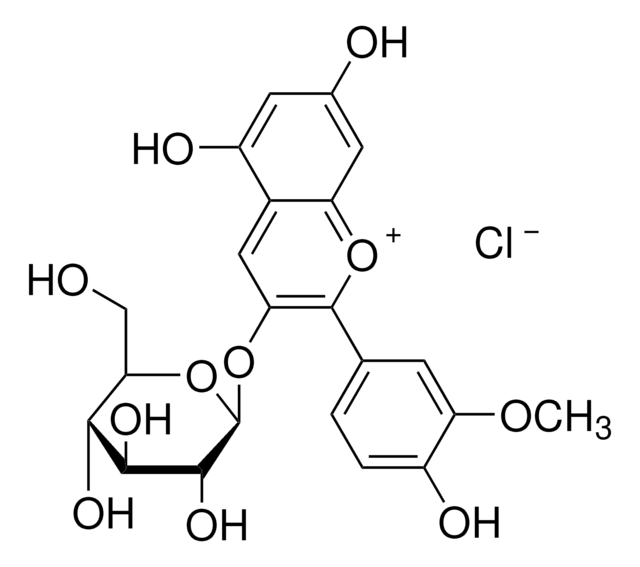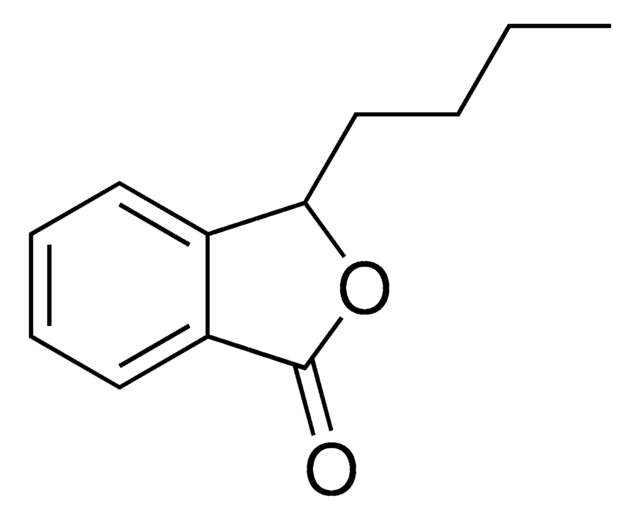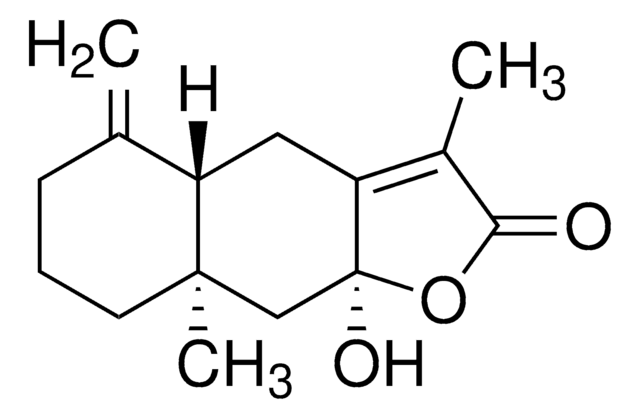P0038
Paeoniflorin
≥98% (HPLC)
Synonym(s):
NSC 178886, Peoniflorin
About This Item
Recommended Products
biological source
plant (Paeonia Albiflora)
Quality Level
assay
≥98% (HPLC)
form
powder
technique(s)
HPLC: suitable
impurities
<3.0% water (Karl Fischer)
color
white
solubility
water: insoluble
storage temp.
2-8°C
SMILES string
C[C@@]12C[C@@]3(O)O[C@@H](O1)[C@]5(COC(=O)c4ccccc4)[C@H]3C[C@]25O[C@@H]6O[C@H](CO)[C@@H](O)[C@H](O)[C@H]6O
InChI
1S/C23H28O11/c1-20-9-22(29)13-7-23(20,32-18-16(27)15(26)14(25)12(8-24)31-18)21(13,19(33-20)34-22)10-30-17(28)11-5-3-2-4-6-11/h2-6,12-16,18-19,24-27,29H,7-10H2,1H3/t12-,13-,14-,15+,16-,18+,19-,20+,21+,22-,23+/m1/s1
InChI key
YKRGDOXKVOZESV-WRJNSLSBSA-N
Looking for similar products? Visit Product Comparison Guide
Related Categories
General description
Application
Biochem/physiol Actions
Other Notes
Storage Class
11 - Combustible Solids
wgk_germany
WGK 3
flash_point_f
Not applicable
flash_point_c
Not applicable
Certificates of Analysis (COA)
Search for Certificates of Analysis (COA) by entering the products Lot/Batch Number. Lot and Batch Numbers can be found on a product’s label following the words ‘Lot’ or ‘Batch’.
Already Own This Product?
Find documentation for the products that you have recently purchased in the Document Library.
Customers Also Viewed
Our team of scientists has experience in all areas of research including Life Science, Material Science, Chemical Synthesis, Chromatography, Analytical and many others.
Contact Technical Service